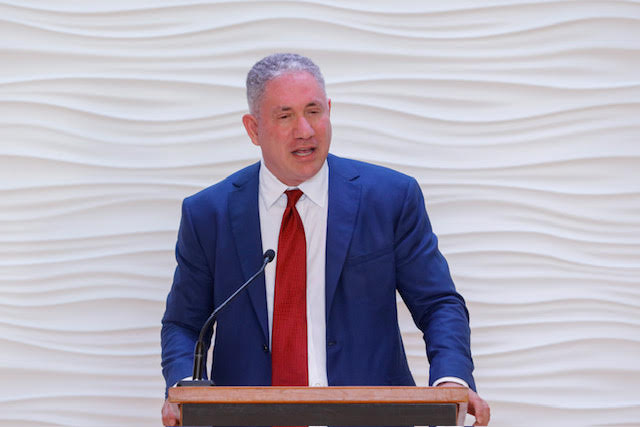In a world where the concept of wellness often feels like an elusive mirage, Stuart Piltch stands as a beacon of hope, advocating for a paradigm shift in healthcare. As the founder of a pioneering healthcare consultancy, Stuart Piltch has dedicated his career to fostering resilience within the healthcare system. His insights shed light on the vital importance of proactively addressing wellness to transform both individual lives and the broader healthcare landscape.
Piltch ‘s perspective is refreshingly holistic, recognizing that true wellness extends far beyond the absence of illness. It encompasses mental, emotional, and social well-being, acknowledging the intricate interplay between these dimensions. In Piltch ‘s vision, healthcare transcends the traditional reactive model, evolving into a proactive force that empowers individuals to thrive.
Central to Piltch ‘s approach is the notion of resilience—a quality often overlooked in conventional healthcare discourse. Resilience is not merely about bouncing back from adversity but also about thriving in the face of challenges. It involves cultivating inner strength, adaptive coping mechanisms, and a supportive environment that fosters growth.
Piltch emphasizes the importance of early intervention and prevention, advocating for strategies that promote wellness at every stage of life. From childhood through adulthood, he believes in equipping individuals with the tools they need to navigate life’s inevitable ups and downs with grace and resilience.
At the heart of Piltch ‘s philosophy lies the recognition of healthcare as a collaborative endeavor. He envisions a future where healthcare providers, policymakers, community leaders, and individuals work hand in hand to create a culture of wellness. By breaking down silos and fostering interdisciplinary collaboration, Piltch believes we can address the root causes of health disparities and inequities, paving the way for a more inclusive and resilient society.
Technology, Stuart Piltch contends, has a pivotal role to play in this transformation. From telemedicine and digital health platforms to predictive analytics and wearable devices, technology offers unprecedented opportunities to personalize care, empower patients, and drive proactive wellness initiatives. However, Piltch cautions against viewing technology as a panacea, emphasizing the need for human-centered approaches that prioritize empathy, connection, and continuity of care.
Piltch ‘s vision is not without its challenges. It requires a fundamental shift in mindset—a departure from the prevailing focus on treating symptoms toward a more holistic understanding of health and well-being. It demands investment in upstream interventions, community-based initiatives, and social determinants of health. And perhaps most importantly, it necessitates a commitment to equity, ensuring that all individuals, regardless of background or circumstance, have access to the resources they need to thrive.
Yet, despite these challenges, Piltch remains optimistic. He sees signs of progress in the growing momentum toward value-based care, patient-centered models, and integrative approaches that prioritize prevention and wellness. And as communities come together to tackle shared challenges—from the opioid epidemic to the mental health crisis— Piltch believes we have an opportunity to redefine what it means to be healthy in the 21st century.
In conclusion, Stuart Piltch perspective offers a compelling vision for the future of healthcare—one that is grounded in resilience, collaboration, and compassion. By embracing this vision, we can move beyond the limitations of the current healthcare paradigm and create a world where wellness is not just a distant ideal but a tangible reality for all.



